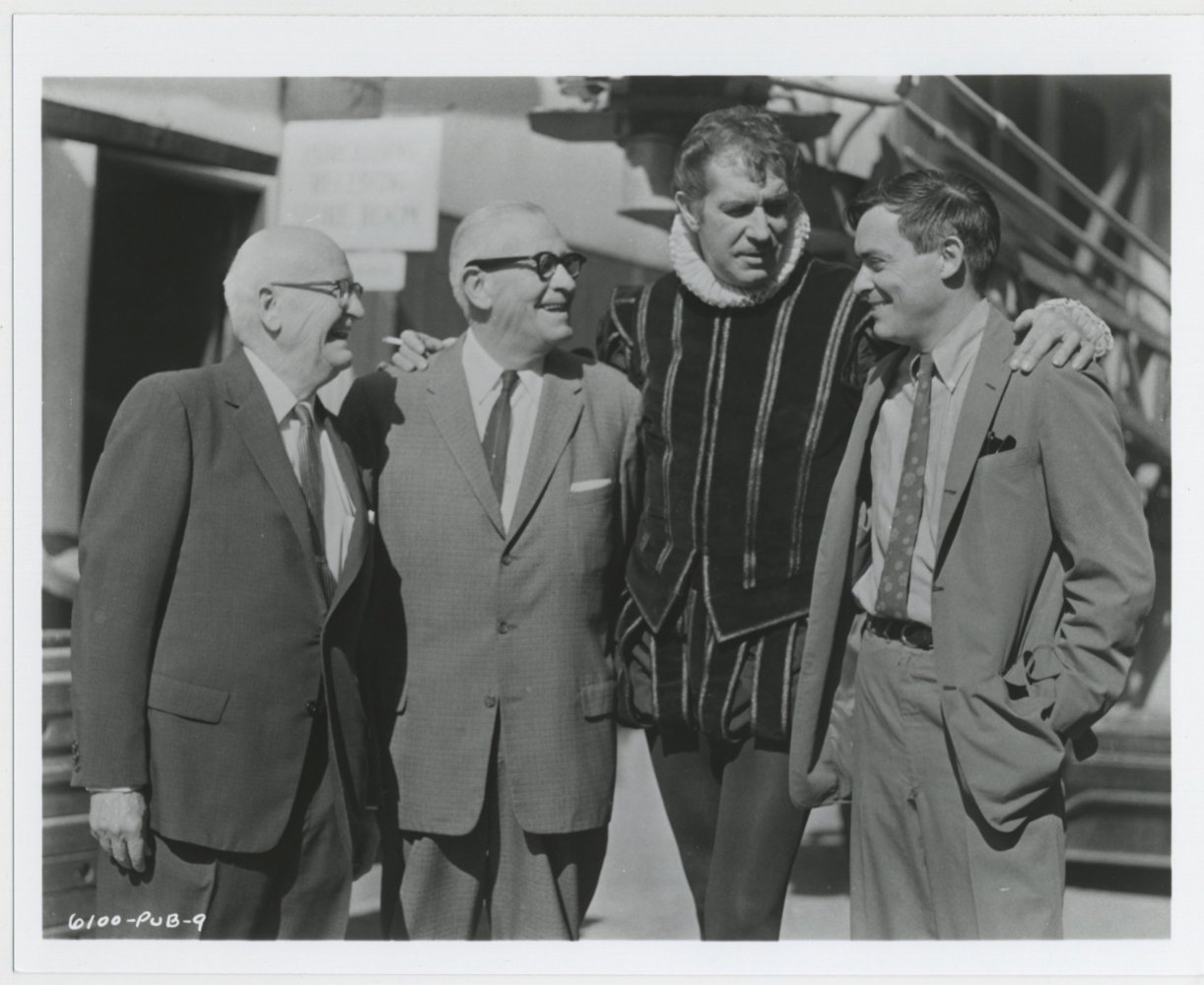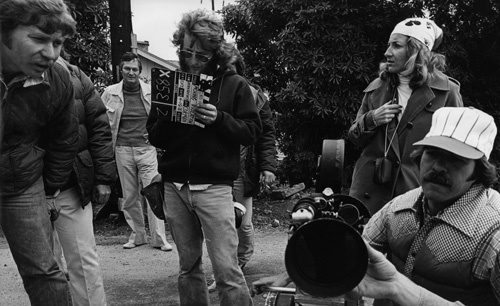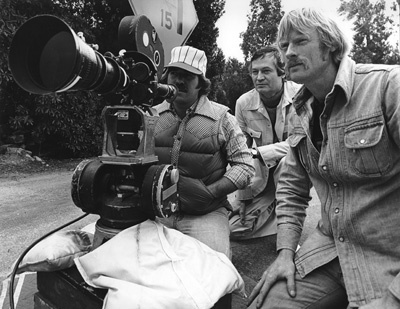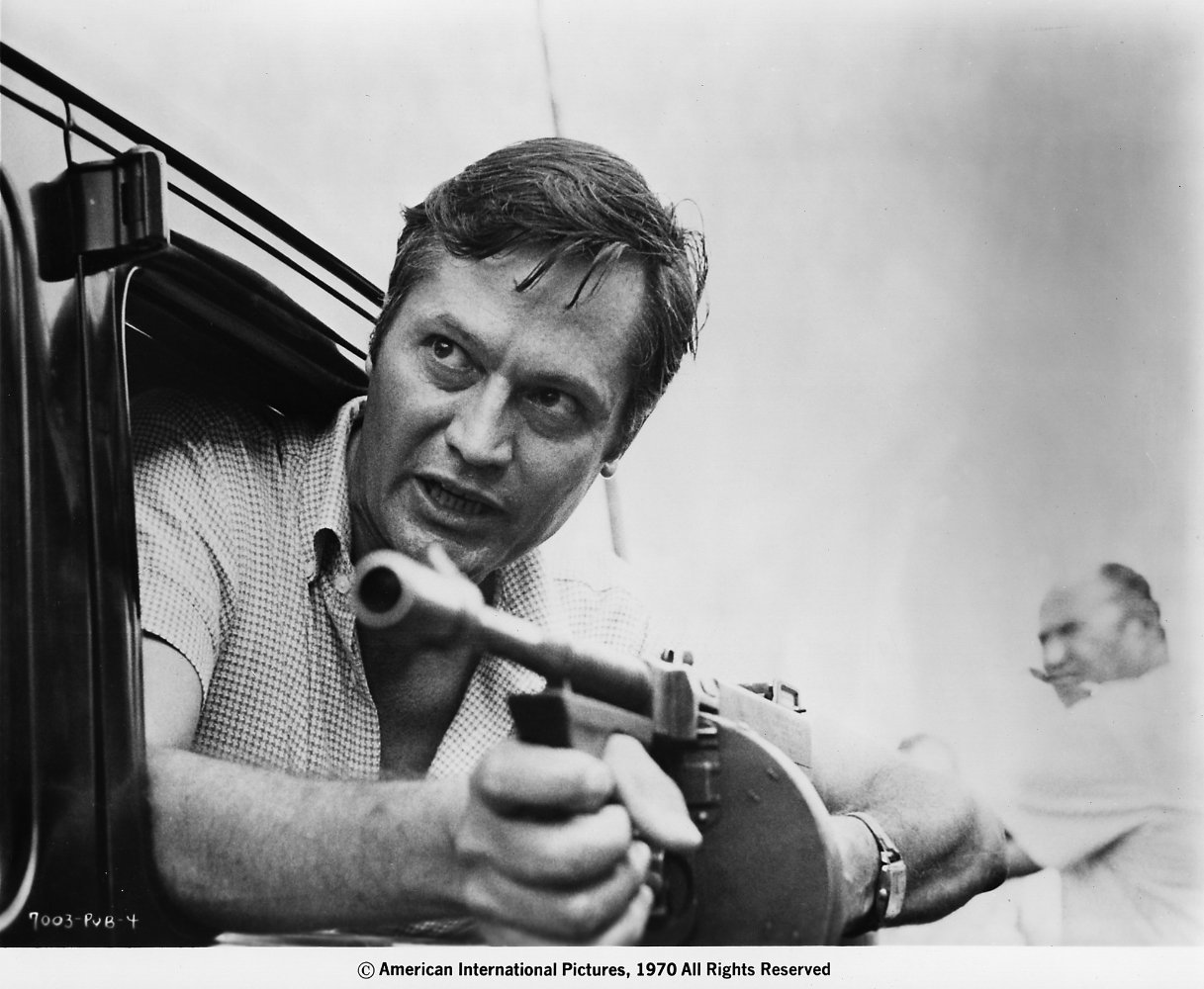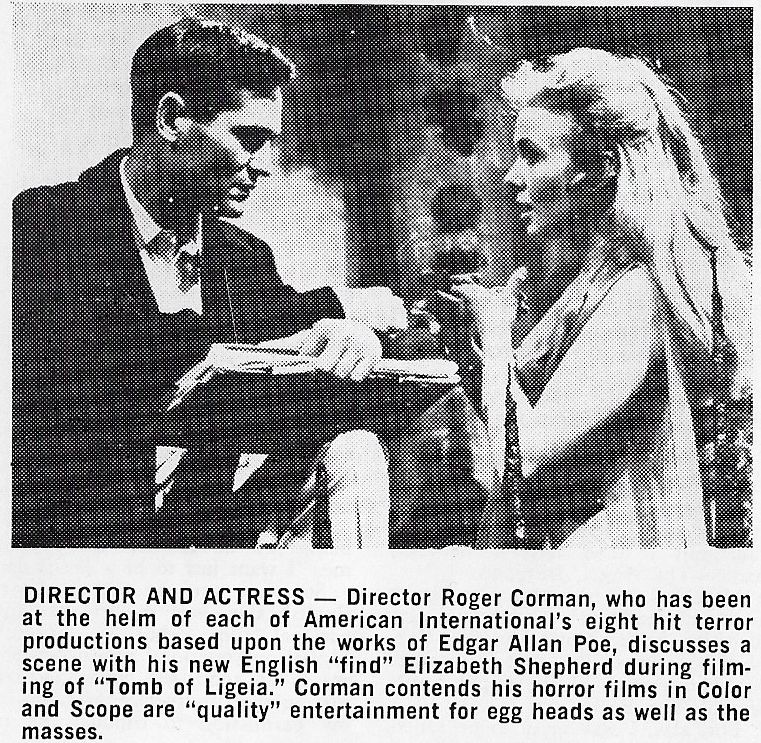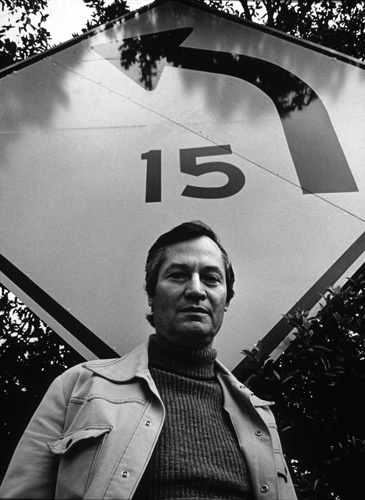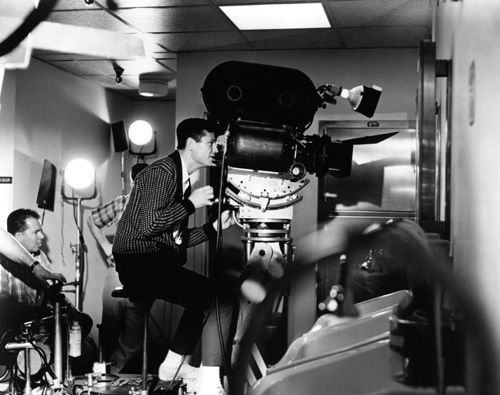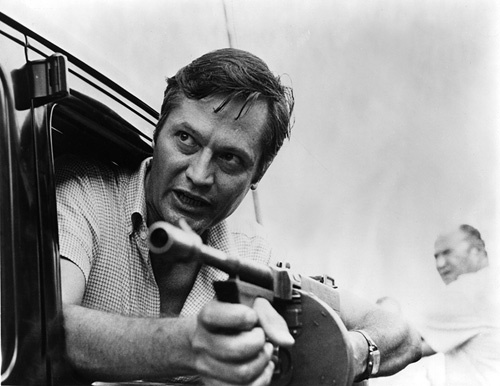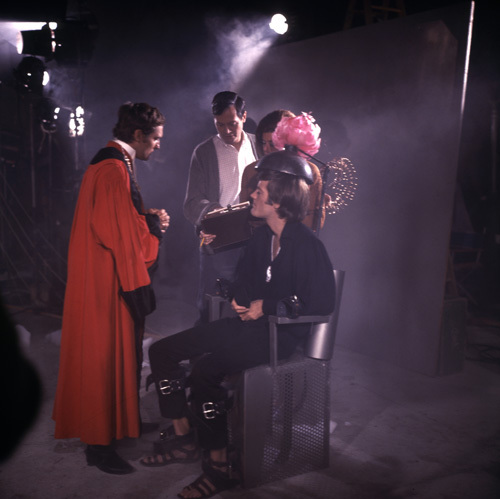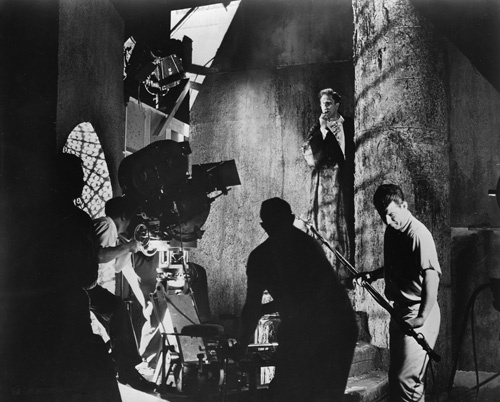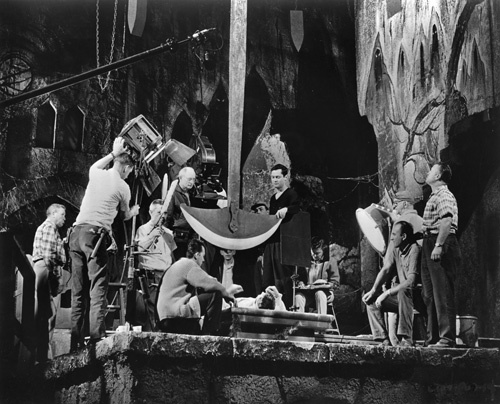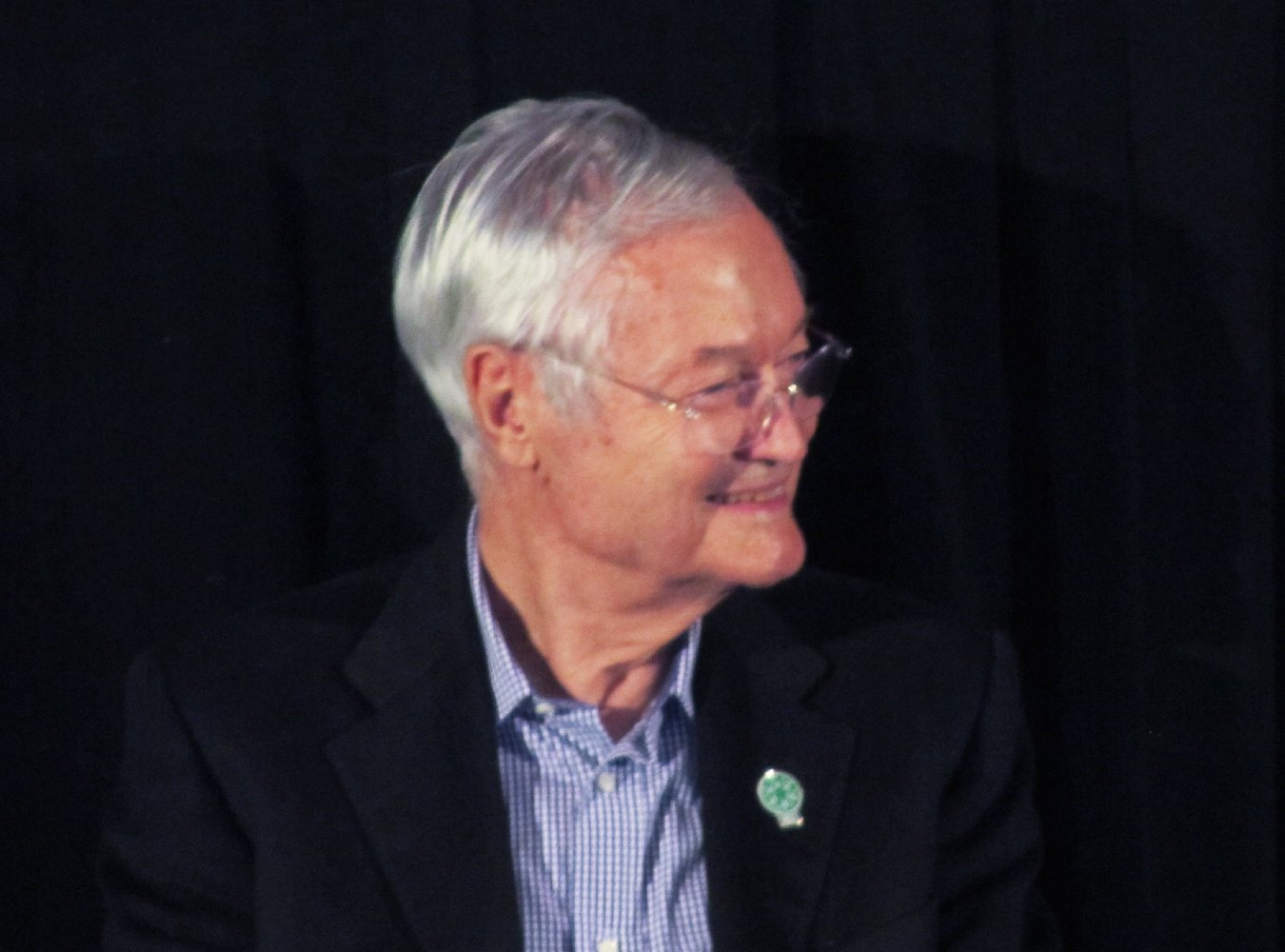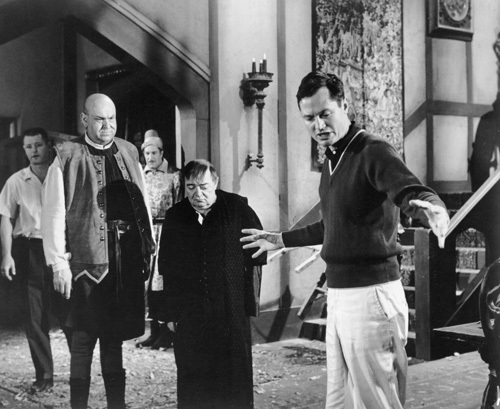
Roger Corman
Birthday: 5 April 1926, Detroit, Michigan, USA
Birth Name: Roger William Corman
Height: 188 cm
Roger William Corman was born April 5, 1926, in Detroit, Michigan. Initially following in his father's footsteps, Corman studied engineering at Stanford University but while in school, he began t ...Show More
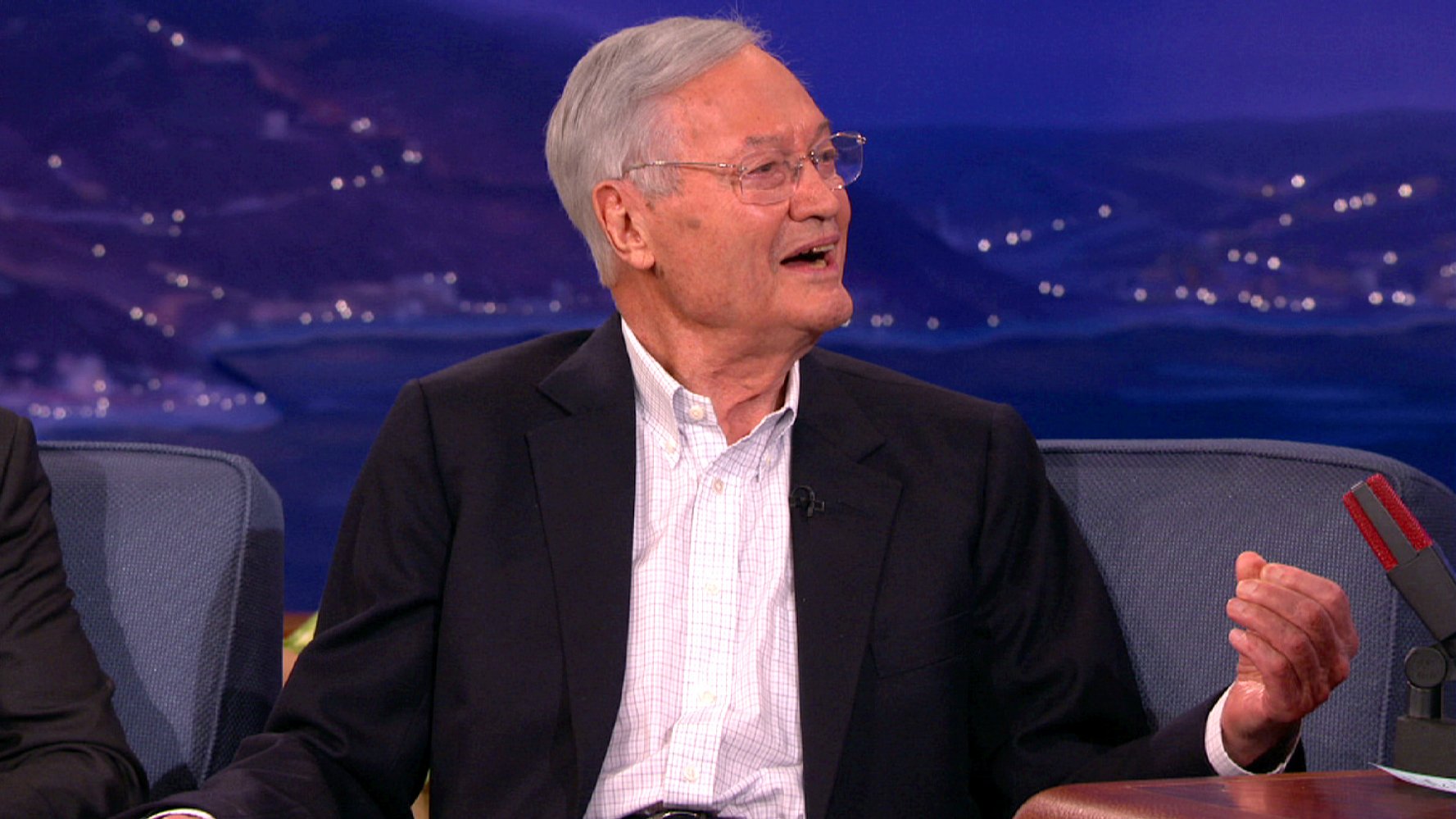
[on his first job in the film industry, looking through material that might be turned into movies] I Show more
[on his first job in the film industry, looking through material that might be turned into movies] I was a reader at 20th Century Fox, and I'd only been there a few months, and the story editor called me in and said: "Roger, you have never given a positive analysis of anything we've ever given you". And I said: "That's because I'm the youngest guy here and you give me all the rotten stuff. Give me something that's good and I'm perfectly willing to praise it". Hide
[on Death Race 2000 (1975)] The original idea came from a short story by Ib Melchior. I felt that th Show more
[on Death Race 2000 (1975)] The original idea came from a short story by Ib Melchior. I felt that the idea was good but that it had to be developed. So I added the political element. I started thinking about the violence in society and in sport, from the Roman gladiatorial games on, and the involvement of spectators. And that's when the idea of killing the pedestrians came to me. I thought that really added to it.But then I thought, you can't take the killing of the pedestrians seriously. Well, if you're a pedestrian you can, but if you're watching the film, it has to be a comedy. So it developed from a short story about cars hitting other cars into a social and political commentary, an action comedy. The commentary is secondary; it is not a serious essay on violence in society. It is primarily an action comedy. Hide
All my films have been concerned simply with man as a social animal.
All my films have been concerned simply with man as a social animal.
[on Death Race 2050 (2017)'s political overtones] The president does have a hairstyle which could be Show more
[on Death Race 2050 (2017)'s political overtones] The president does have a hairstyle which could be approaching [president elect Donald J. Trump's] hairstyle, but I don't want to get too heavy into that, because Trump will come and go and the film will remain. So it's a mistake to try to hit something that specific, knowing that in a few years no one will know what that hairstyle is about. Hide
[2013] The cycle of horror right now is more explicit than when I was doing horror films. Indirectio Show more
[2013] The cycle of horror right now is more explicit than when I was doing horror films. Indirection used to be the word. We suggested, we implied the horror by the cutting, camera movements and storyline, the horror was built up and built up. Now you're more likely just to cut somebody's hand off, and blood spurts across the screen, and you get horror that way. I think that will start to fade. I've been around long enough to see cycles start, build and come to an end. One director cuts off someone's hand at the wrist, the next at the shoulder. It just gets gorier and gorier. The audience will react and turn away from this. Hide
I think there is always a political undercurrent in my films. With the exception of The Intruder (19 Show more
I think there is always a political undercurrent in my films. With the exception of The Intruder (1962), I tried not to put it on the surface. Hide
Horror films always do well. But in cycles. One horror film will do well, and people will make lots Show more
Horror films always do well. But in cycles. One horror film will do well, and people will make lots of horror films, saturate the market until there are too many horror films and people will slow down making horror films. And then it'll start up again. Hide
[on Martin Scorsese preferring The Wild Angels (1966) to Ingmar Bergman's Smultronstället (1957 Show more
[on Martin Scorsese preferring The Wild Angels (1966) to Ingmar Bergman's Smultronstället (1957)] I think Marty sometimes says things just to startle people. But we can certainly agree that 'Wild Angels' had more action than 'Wild Strawberries'. Hide
I started as a writer and then I became a writer-producer. I produced two films and I watched what t Show more
I started as a writer and then I became a writer-producer. I produced two films and I watched what the directors were doing and I simply said: "I can do that". So, I just took over on the third film that I produced and started directing. I watched the two directors and saw what they were doing. I looked to other films and studied them, the way the shots were laid out and so forth, and taught myself to direct. Hide
With me, Jack Nicholson would generally go second, third take. Stanley Kubrick on The Shining (1980) Show more
With me, Jack Nicholson would generally go second, third take. Stanley Kubrick on The Shining (1980) went over 100 takes on one scene. I can't remember exactly, but it was 120, 130 takes or something. And Jack is a good guy, and stood there doing his lines 120, 130 times. And he told me he went up to Kubrick afterwards and said, "Stanley, I'm with you all the way, but I want you to know I generally peak about the 70th or 80th take". Hide
I've never made the film I wanted to make. No matter what happens, it never turns out exactly as I h Show more
I've never made the film I wanted to make. No matter what happens, it never turns out exactly as I hoped. Hide
The myth that when I was directing that I was always printing the first take. I would generally go t Show more
The myth that when I was directing that I was always printing the first take. I would generally go two, three, four takes. First take is generally not exactly what you're looking for. Hide
I felt Jack Nicholson was brilliant from the time I met him. I enrolled in a method acting class, no Show more
I felt Jack Nicholson was brilliant from the time I met him. I enrolled in a method acting class, not to learn how to act, but to learn how to relate to actors. And that's where I met Jack. The thing that surprised me is that it took so long for him to be recognized. Hide
[on his cycle of Edgar Allan Poe movies] What I was trying to do was bring back the concept of the g Show more
[on his cycle of Edgar Allan Poe movies] What I was trying to do was bring back the concept of the gothic horror film, which was not original to me, obviously. But that type of film had fallen out of favor, so for a young audience it was a new type of film, and I felt that would appeal to them. And always with Vincent Price playing the lead, it would be a young man and a young girl playing the second leads, so we did have the name and the stature of Vincent, but we would have a young leading man and leading lady in their twenties to appeal to a teenage audience. So I was trying to get it both ways. And I simply wanted to do House of Usher (1960). Hide
The film industry will always exist, but it will no longer be the film industry. It will be digital Show more
The film industry will always exist, but it will no longer be the film industry. It will be digital or possibly virtual reality, or holograms. I think of it as an industry, a business, and an art form. Today, the business end of it has become more powerful than the art form. I think what we need to save it - although it's making real money and it's not in real trouble - to reinvigorate it is to remember this is an art form as well as a business. You can't continually spend $100 or $200 million on a superhero picture. You've got to at least let some films come through that are closer to art. Hide
The $100 and $200 million films are dominating the box office so much that there is no space, or ver Show more
The $100 and $200 million films are dominating the box office so much that there is no space, or very little space, for the independent films. Every now and then an independent film will come through and can do some business at the box office. So the genre is not completely dead, but it's been heavily damaged. Hide
[on his first flop, The Intruder (1962)] It changed a lot of my feelings about filmmaking. It went t Show more
[on his first flop, The Intruder (1962)] It changed a lot of my feelings about filmmaking. It went to festivals and got really great reviews. One New York critic said, "'The Intruder' is a major credit to the entire American film industry". And it was the first movie I made that lost money! I analyzed it. Even though it got all the critical acclaim and so forth, it was too much of a lesson, trying to teach the audience. I had to get back to entertainment. Hide
In science-fiction films, the monster should always be bigger than the leading lady.
In science-fiction films, the monster should always be bigger than the leading lady.
[on advising Francis Ford Coppola not to go to the Philippines to shoot Apocalypse Now (1979)] Havin Show more
[on advising Francis Ford Coppola not to go to the Philippines to shoot Apocalypse Now (1979)] Having made films there myself, I said, "Francis, don't go! You're going into the rainy season". He said, "Oh, it'll be a rainy picture". But it's not rain as we know it. It starts in May and continues through to October. His set was wiped out. And the insurance paid out on the basis of a monsoon. But there was no monsoon! It was just normal July weather. He went back in good weather and made the film. Hide
Roger Corman's FILMOGRAPHY - Page 4
All
as Actor (109)
as Director (7)
as Creator (1)
 Roger Corman'S roles
Roger Corman'S roles

FBI Director Hayden Burke

Hollywood Director

Prince Prospero

Studio Executive














